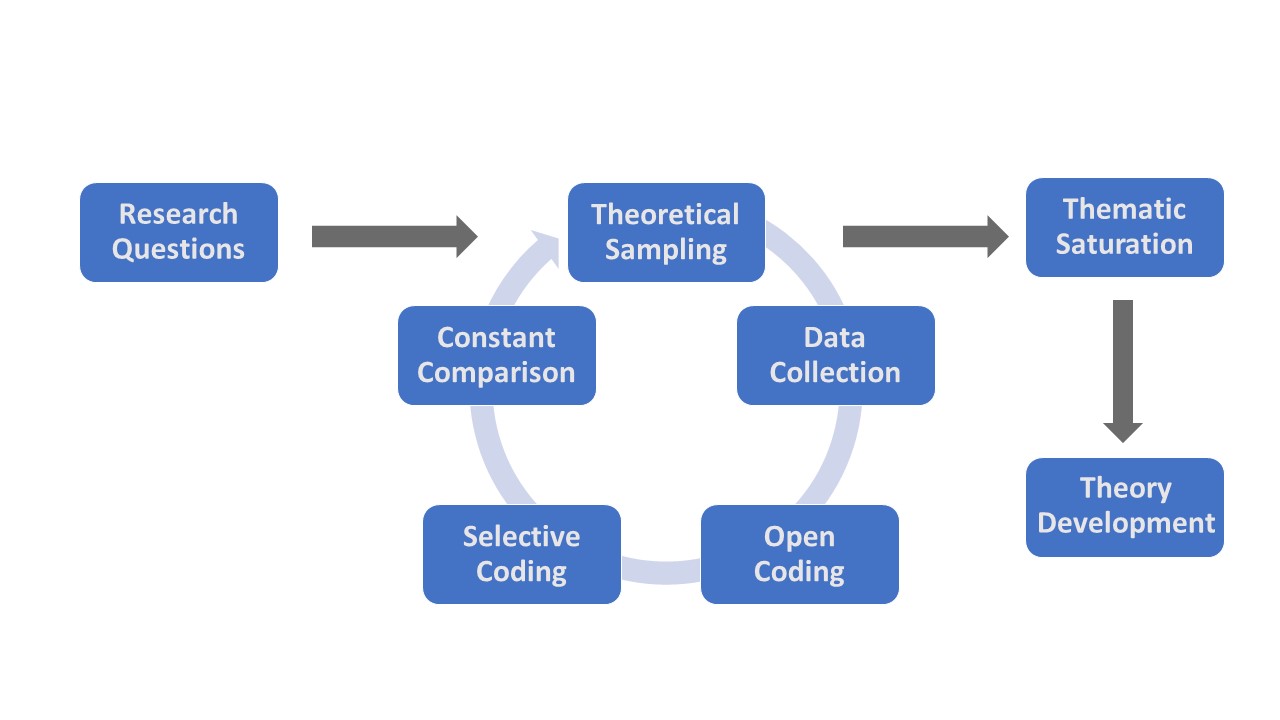Session Information
Date: Monday, November 13, 2023
Title: (1013–1032) Healthcare Disparities in Rheumatology Poster II: Socioeconomic Determinants
Session Type: Poster Session B
Session Time: 9:00AM-11:00AM
Background/Purpose: Axial spondyloarthritis (axSpA) can result in significant morbidity. Existing studies suggest functional impairment and inflammation may be worse in Black and Latine patients. However, no studies have focused on the experiences of diverse patients with axSpA. This study fills a critical knowledge gap by utilizing qualitative methods to describe the experiences of patients with axSpA from diverse racial-ethnic groups.
Methods: We identified a sampling frame of 128 adult patients with: ≥1 rheumatology visit in a university healthcare system within 3 years with a linked ICD code (spondylopathies) and patient-identification of race as Black, African American, Asian, Native American, American Indian, Alaska Native, Native Hawaiian, or Pacific Islander, or ethnicity of Hispanic or Latino. Twenty-eight patients were excluded due to not meeting diagnostic criteria or language preference other than English or Spanish. We used qualitative methods with a grounded theory approach (Figure 1). Sampling was purposive. We performed semi-structured individual interviews of 20 patients, conducted in English or Spanish. Analysis of interview transcripts was ongoing and iterative. Participants were recruited until thematic saturation was reached.
Results: Qualitative data analysis indicated six major themes (figure 2): 1) nebulous diagnostic definitions; 2) diversity and intersectionality; 3) road to rheumatology; 4) barriers to diagnosis; 5) limitations in treatment options; 6) coping with chronic illness.
Within nebulous diagnostic definitions, minor themes included: patient difficulty in understanding diagnosis, provider gaps in knowledge of axSpA, inconsistency in diagnostic language, and provider failure to query for or disbelief of inflammatory symptoms.
For diversity and intersectionality, minor themes included: the role of healthcare outside the US, provider-patient discordance, bias along age, gender and race/ethnic/cultural axes, the impact of a gendered and racialized illness script for axSpA and the importance of unique social stressors for patients.
Regarding the road to rheumatology, minor themes included: reliance on positive HLA-B27 or recurrent uveitis for referral to rheumatology care, the burden of seeing multiple providers, and financial barriers to supportive diagnostic testing.
In barriers to diagnosis, minor themes included: patients’ internalized communication failure, provider disbelief of symptoms or misattribution, and overall mistrust in the medical system
Within limitations in treatment, minor themes included: overreliance on physical therapy and NSAID use, difficulty understanding medication options and difficulty understanding systemic nature of disease.
About coping with chronic illness, minor themes included: chronic and incurable disease, fear and anxiety over prognosis, use of complementary therapies, protective strategies, and the importance of safety net services.
Conclusion: Our study identified six major themes of diverse patient experiences. Studying patient experiences is critical for understanding mechanisms of health disparity, targeting interventions and, ultimately, improving quality of care.
To cite this abstract in AMA style:
Mantilla B, Wysham K, liew J, Hughes G. “Not of Your Ethnicity”: A Qualitative Study Exploring Diverse Patient Experiences in Axial Spondyloarthritis (axSpA) [abstract]. Arthritis Rheumatol. 2023; 75 (suppl 9). https://acrabstracts.org/abstract/not-of-your-ethnicity-a-qualitative-study-exploring-diverse-patient-experiences-in-axial-spondyloarthritis-axspa/. Accessed .« Back to ACR Convergence 2023
ACR Meeting Abstracts - https://acrabstracts.org/abstract/not-of-your-ethnicity-a-qualitative-study-exploring-diverse-patient-experiences-in-axial-spondyloarthritis-axspa/



